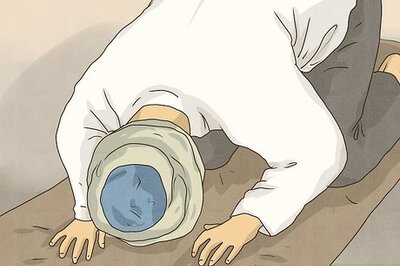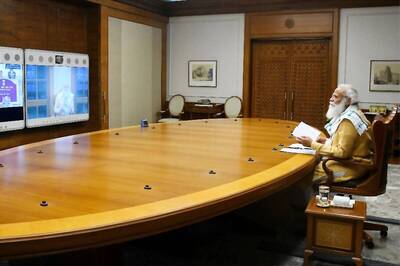
views
United Nations: Over 5000 people have been killed in Syria's violent crackdown against protesters, the UN rights chief has told the Security Council, recommending that the regime of President Bashar-al Assad be referred to the International Criminal Court for crimes against humanity.
UN High Commissioner for Human Rights Navi Pillay briefed the Security Council on Tuesday in a closed door meeting about the "rather shocking" human rights violations and continued loss of life in Syria during the nine-month long uprising.
She said out of those killed, more than 300 were children.
Pillay said she had informed the Council in August that the bloody crackdown on civilians had claimed 2000 lives but in four months' time, the death toll has more than doubled.
"Today I reported that this number exceeds 5000 and the number of children killed is more than 300," Pillay said.
She said the Syrian government's brutal crackdown on civilians, including the widespread and systematic nature of killings and torture of thousands in detention centres constitute crimes against humanity and "I recommended that there should be a referral to the International Criminal Court".
Pillay said her briefing was "taken very seriously and everyone (in the Council) said this level of violence has to stop".
Representatives of Britain, France, Germany, Portugal and the US later expressed concern over the deteriorating situation in Syria, saying UNSC's inaction regarding Assad's regime can no longer be an option.
The UNSC has so far issued a Presidential Statement asking the Syrian government to stop the violence. The statement was passed in August under India's Presidency of the Council.
While weaker than a resolution, a presidential statement still becomes part of the Security Council's record.
Later in October, Russia and China had vetoed a council resolution condemning the Syrian violence.
Britain's Ambassador to the UN Mark Lyall Grant termed Pillay's briefing as "really distressing", saying "it was the most horrifying briefing that we have had in the Council in the last two years".
He said the Council will remain in touch with leaders of the Arab League and accordingly "decide what next steps to take (regarding Syria)".
"Obviously, we will consider a range of options when the issue comes back to the Security Council," Grant said. "We will need to move in lockstep with the Arab League".
Germany's Permanent Representative Peter Wittig said he was "shocked and appalled" by Pillay's assessment and "it is unbearable that the Council is condemned to remain silent on Syria".
He said the Security Council has been asked to respond and it should not be allowed to fall back behind.
Russia's UN ambassador Vitaly Churkin said the council was "greatly troubled by the tragic developments in Syria in the past few months".
"The only way to resolve the situation in Syria is through a Syrian-led political process, and that means dialogue," Churkin said, adding that western nations instead "switch gears and turn into regime change mode, discouraging dialogue, discouraging dialogue within Syria, discouraging dialogue between the Arab League and Syria. This is very dangerous".
"In fact they make no secret of the fact that they want regime change. In numerous statements you can trace their policy, which cannot be conducive to a political process," the Russian envoy said.
France's UN envoy Gerard Araud said the UN Security Council is "morally responsible for what is happening today in Syria, the suffering of the Syrian people".
"France and other members of the Security Council consider that the silence of the council is a scandal. It is scandalous that the council, because of the opposition of certain members and the indifference of others, could not act to exercise pressure on the Syrian authorities".
US Deputy Permanent Representative Rosemary DiCarlo said from the "very troubling briefing" by Pillay it is clear that "we've got a human rights crisis in Syria that is also a threat to international peace and security".
She said in the wake of the Syrian government's brutality, the Arab League, Syria's close neighbour Turkey, the Human Rights Council and the General Assembly's Third Committee that deals with humanitarian issues have taken "some very bold steps" in condemning Syria.
"We find it unconscionable that the Security Council has not spoken out on this issue in recent months given everything that has happened.
"We really need to see the Security Council on the right side of history here, to stand with the Syrian people," she said.




















Comments
0 comment